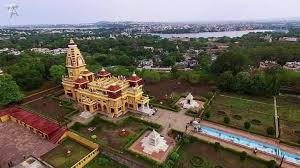At a time when India’s festivals risk slipping into the spectacle of consumption, Chief Minister Dr. Mohan Yadav’s invocation of Sanatan values at Ujjain’s Tilkeshwar Mahadev temple offers a deeply rooted counterpoint. His message, of reverence for the cow, the farmer, and the rhythms of nature, recalls a civilisational truth that the land and its people survive not through abundance alone, but through balance.
As the Chief Minister performed Govardhan Puja and joined the Gau Annakoot celebration, his appeal went beyond ritual. It was an affirmation that Diwali finds its truest meaning only when the cultivator and the cattle, the twin life forces of India’s agrarian heart, prosper together. In his words, prosperity cannot be divorced from responsibility, nor festivity from fraternity.
His government’s initiatives speak to this philosophy. The decision to expand grants for gaushalas underscores the state’s commitment to preserving animal wealth, while subsidies under the Suryaghar Yojana and incentives for irrigation and dairy entrepreneurship are reshaping agricultural self reliance. The ongoing river linking campaign, too, signals a reimagining of traditional water wisdom through modern planning.
Equally noteworthy is the revival of local agricultural enterprise. Through schemes such as the Bhavantar Bhugtan Yojana, the state seeks to bridge the gap between farmer and trader, a vital link in ensuring price stability and fairness. The proposed food parks in the Malwa region could mark a transformative step toward value added rural economies, positioning farmers not as raw producers but as stakeholders in processing and marketing chains.
Dr. Yadav’s emphasis on Vocal for Local adds another thread to this integrated vision, one that binds rural employment, ecological stewardship, and cultural continuity in a single braid. It reminds us that true development cannot sprout in isolation from tradition and that the sacred must find pragmatic expression in governance.
In celebrating Govardhan Puja amid the pastoral devotion of Ujjain, the Chief Minister subtly reasserted the philosophical essence of Indian polity, that governance, like worship, must remain grounded in humility, conservation, and compassion. If this synthesis of policy and piety endures, Madhya Pradesh may yet emerge as a model where modern progress grows out of ancient soil.




